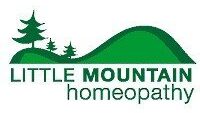By helping the body to heal itself, homeopathic treatment helps your child deal with the world around them while preserving their unique personality and individuality.
A natural alternative to ritalin with no side effects.
Adults with ADHD can also benefit from classical homeopathic treatment.
Learn more about classical homeopathy
Scientific Studies Prove the Effectiveness of Homeopathy for ADD / ADHD and Hyperactivity in Children
Frei H, Thurneysen A. “Treatment for Hyperactive Children: Homeopathy and Methylphenidate Compared in a Family Setting.” British Homoeopathic Journal, 2001, 90, 183-188.
114 children attending a paediatric practice where conventional and homeopathic medicines were used, and who were previously diagnosed with ADHD, were given individualised homoeopathic medicines (increasing potencies of the most similar LM remedy). On a parent assessed basis (confirmed by the clinician), if a minimum 50% improvement was not noted within a certain period of time they were placed on Methylphenidate. 75% of the children responded to homoeopathy and 22% required Methylphenidate. 3% of patients did not respond to either regime.
83 children diagnosed as suffering from ADHD using DSMIV criteria were treated with individually prescribed homeopathic medicines. Using the Connor’s Global Index scale it was determined that 63 of these children responded to treatment. These children were then randomised to receive either placebo or homeopathic medicines for 6 weeks and at this point were crossed over to receive placebo if they’d been using the homeopathics or visa versa. At the end of this period it was found that homeopathic therapy provided significantly better results than placebo.
Lamont J., “Homoeopathic Treatment of Attention Deficit Hyperactivity Disorder (ADHD).” British Homoeopathic Journal, 1997, 86, 196-200.
43 children with ADHD were given either a placebo or an individualised homeopathic medicine, in accordance with a double blind partial crossover dose regime. When the results were compared at the end of the trial, it was found that the homeopathic treatment for ADHD was superior to that using placebo.
Strauss LC. “The Efficacy of a Homeopathic Preparation in the Management of Attention Deficit Hyperactivity Disorder.” Biomedical Therapy, 2000, 18, 2, 197- 201.
20 children suffering from ADHD, were given either placebo or a homoeopathic combination (Heel Selenium-Homaccord) and were assessed in accordance with pre and post test conduct and psychosomatic problems, impulsivity and anxiety. The homoeopathic combination provided superior results to those of placebo.
Brulé D. Sule L. Landau-Halpern B. Nastase V. Jain U Vohra S. Boon H. University of Toronto, ON, Canada. Riverdale Homeopathic Clinic, Toronto, ON, Canada. Centre for Addiction and Mental Health, Toronto, ON, Canada. University of Alberta, Edmonton, AB, Canada. Forsch Komplementmed An Open-Label Pilot Study of Homeopathic Treatment of Attention Deficit Hyperactivity Disorder in Children and Youth 2014;21:302-309.
Abstract
Background: An open-label pilot study of individualized homeopathy for attention deficit hyperactivity disorder (ADHD) was conducted to assess the potential for future studies with a focus on the feasibility of the recruitment plan and outcome measure schedules; identification of any group characteristics of participants who respond significantly to the therapy; and establishing the length of time required for an improvement in ADHD symptoms.
Patients and Methods: Participants (aged 6-16) were recruited through community advertisement and outreach. Participants completed 1 screening and 9 individualized homeopathic follow-up consultations. ADHD symptoms were assessed using the Conners 3 – Parent Questionnaire administered at each consultation. The pre- and post-study difference in Conners Global Index – Parent (CGI-P) T-score was evaluated for each participant. Baseline data of those who showed a statistically significant improvement (responders) were compared to those who did not (non-responders).
Results: 35 participants were enrolled over 11 months. 80% completed all 10 consultations in a median of 12.1 months. 63% had a statistically significant improvement in the primary outcome, first occurring after a mean of 4.5 visits. Overall scores for participants completing at least 2 data points decreased from a baseline median of 85.5 to 74.0 (p < 0.001, CI 95%). There were no significant baseline differences between responders and non-responders. No serious adverse events related to the therapy were reported.
Conclusion: The change in the median CGI-P T-score from baseline to the end of this open-label pilot study was statistically significant. The research methods are feasible. Future studies are warranted.
Twenty children received adjunctive homeopathic treatment and were compared with ten children not receiving homeopathic treatment, at baseline and after 24 weeks, based on DSMIV characteristics (Conner’s Parent Rating Scale – CPRS) and a self-selected-item scale (Measure Your Own Medical Outcome Profile – MYMOP). An analysis of variance (ANOVA) found a significant interaction between time and the treatment received.
A long term analysis of treated children after one year found that they continued to improve, with half the participants registering improvement in their DSMIV scores of over 10 percentiles; a quarter of participants registering improvement of over 20 percentiles, and a quarter registering improvement of less than 10 percentiles.
Homeopathy for ADHD: Cured Cases
A Case of ADHD by Katherine Dehn on hpathy.com
Treating the Cause: Homeopathic Approaches to ADHD. Dr. Anke Zimmerman discusses a large number of cured cases cured with homeopathy.
